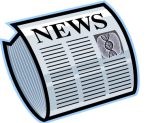 Co-written by PJGH genetic counselors Estie Rose and Chani Wiesman
Co-written by PJGH genetic counselors Estie Rose and Chani Wiesman
This week was a very busy and exciting week for us at the Program for Jewish Genetic Health (PJGH)! Late last week, the New York Times published two articles describing the findings and ramifications of published research conducted by renowned geneticists in the US and Israel. The first article describes a study done by Dr. Ephrat Levy-Lahad at Shaare Zedek hospital, who concluded that ALL Ashkenazi (Eastern European) Jewish individuals should be tested for BRCA mutations—not just those individuals with family histories of breast and/or ovarian cancers. Since about 1 in 40 Ashkenazis will carry a cancer-predisposing BRCA mutation, genetic testing was suggested for everyone at a young age. Then, in case a mutation is present, it is better to find out at a preventable stage.
The second article quotes the scientist who discovered BRCA’s association with cancer and who partnered on the Israeli study, Dr. Mary –Claire King. Dr. King’s statements took this one step further, as she called for screening all American woman 30 or older regardless of race or ethnic background—not just Ashkenazis!
Our inboxes have been flooded and the phones have been ringing all week with inquires about these articles. So how do we feel about these statements? If you have been listening to the news, the media made it sound like these are new ‘guidelines’ or ‘recommendations,’ but we prefer the word ‘opinions.’ These opinions come from a good place, where people want to prevent illness, but they are also somewhat controversial and may be considered by some to be extreme.
For starters, we think it is important to take a step back and spell out what’s so important about BRCA in the Jewish community. After that, we will get to the “PJGH response” to these studies.
We have spoken about BRCA many (many, many!) times in this blog, but we never actually told you why it is related to the Jewish community (our oversight!). BRCA1 and BRCA2 mutations (mistakes in the genes) cause a significantly increased risk for breast and ovarian cancer, as well as some other cancers. Just like there are certain mutations for other diseases that are more common in the Ashkenazi Jewish population, there are three specific mutations in the BRCA genes that are more commonly found in the Ashkenazi Jewish population. Numerous studies have found that between 1 in 40 and 1 in 100 Ashkenazi Jews will carry one of those three BRCA mutations and are therefore likely at an increased risk for cancer. If someone is Ashkenazi Jewish and has a BRCA mutation, the vast majority of the time, it is one of those three mutations. Furthermore, that 1 in 40 – 1 in 100 carrier frequency holds true regardless of personal or family history of cancer. So if you take any random group of 100 Ashkenazi Jews, 1 or 2 of them is likely to carry a BRCA mutation, even if he/she doesn’t have a personal or family history of cancer.
This is a big deal, and it’s a huge community issue.
So what is our current response?
- We are constantly speaking about this topic to the public and its leadership at educational events. Be sure to register for our upcoming panel discussion about this exact topic, on November 3rd at the JCC of Manhattan. Admission is free!
- We have created an educational website, BRCAcommunity.com. Check it out if you think testing may be right for you.
- Stay tuned for more to come. We have a lot of interesting and exciting initiatives in the BRCA realm in the near future!

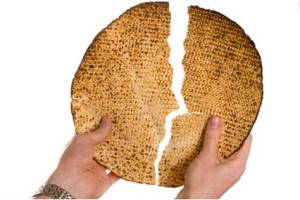 As everyone else in the Jewish world is gearing up for Passover by cleaning, cooking, and planning their Seders, I am thinking about how to best convince you to
As everyone else in the Jewish world is gearing up for Passover by cleaning, cooking, and planning their Seders, I am thinking about how to best convince you to 

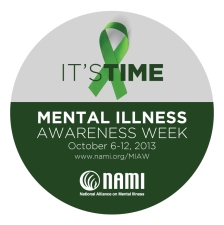 With the support of the
With the support of the 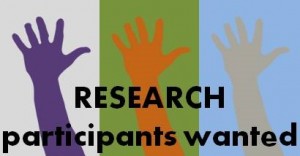



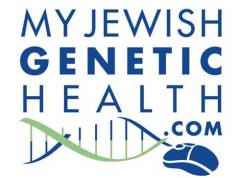 If you haven’t yet heard, last week we launched our new
If you haven’t yet heard, last week we launched our new 

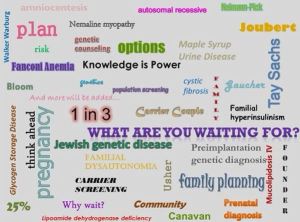 Most of my Sundays involve errands, and then some dedicated time to relaxing and recharging before the upcoming week. This past Sunday I spent ~8 hours at a screening event that we ran at YU, open to Yeshiva College and Stern College students and alumni, and community members in Washington Heights. Registration opened ~3 weeks ago, and we were almost at capacity within days. We ended up screening ~140 individuals (not too shabby if you ask me!).
Most of my Sundays involve errands, and then some dedicated time to relaxing and recharging before the upcoming week. This past Sunday I spent ~8 hours at a screening event that we ran at YU, open to Yeshiva College and Stern College students and alumni, and community members in Washington Heights. Registration opened ~3 weeks ago, and we were almost at capacity within days. We ended up screening ~140 individuals (not too shabby if you ask me!).